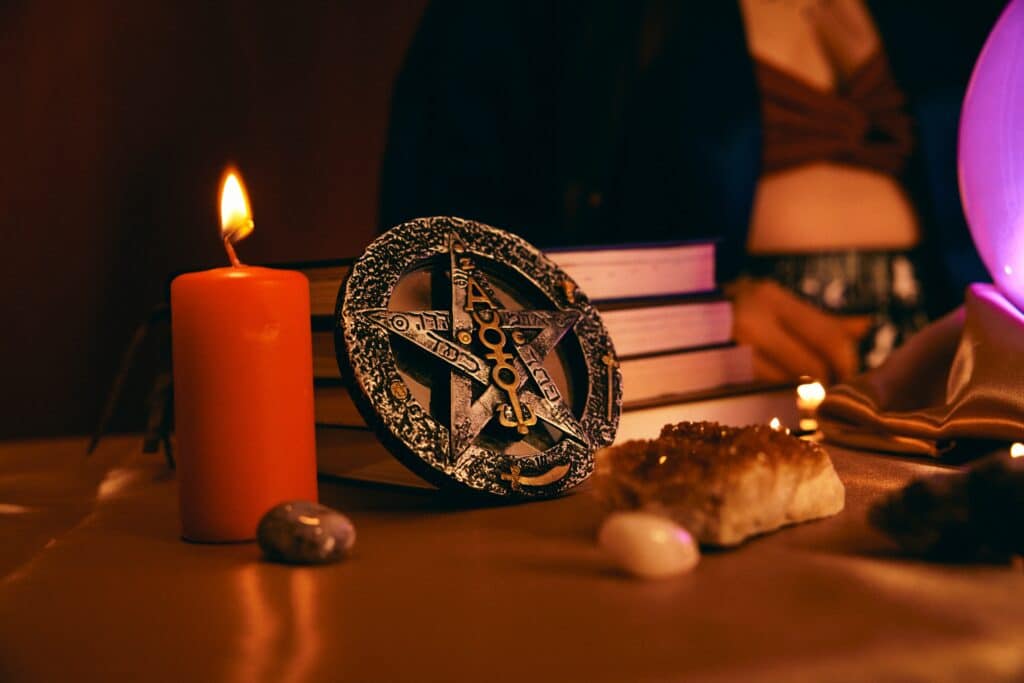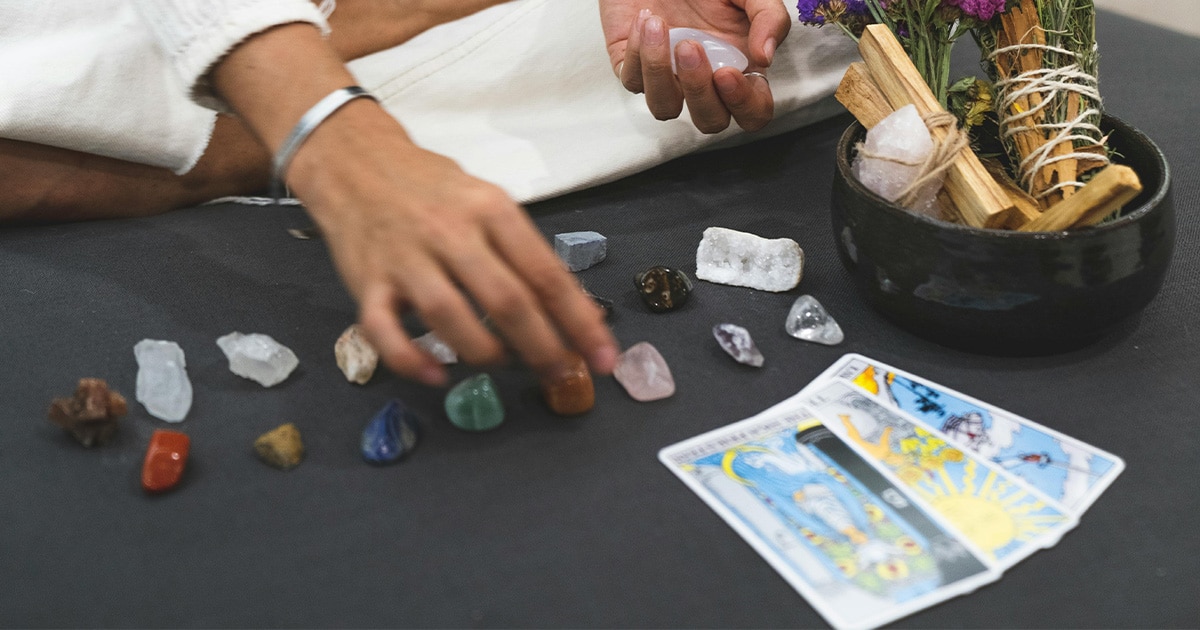Tarot card reading has long been a subject of fascination and controversy. People have sought guidance and insight from tarot cards for centuries, but the question of whether it is a sin remains a contentious one. In this blog post, we will delve into the religious perspectives on tarot card reading, exploring the viewpoints of Christianity, Islam, Hinduism, Buddhism, and Judaism. Additionally, we will examine the historical context of tarot card reading, its origins, and the evolution of its perception over time. Furthermore, we will delve into the ethics and morality of tarot card reading, exploring the moral implications and ethical considerations associated with this practice. Finally, we will attempt to resolve the debate by addressing the question: is tarot card reading a sin? Join us on this thought-provoking journey as we seek to shed light on this enigmatic topic.
Understanding Tarot Card Reading
Tarot card reading is a practice that involves the use of a deck of cards, known as tarot cards, to gain insight, guidance, and clarity on various aspects of life. To understand tarot card reading, it is essential to familiarize ourselves with the structure and symbolism of the tarot deck.
The Tarot Deck
A standard tarot deck consists of 78 cards, divided into two main categories: the Major Arcana and the Minor Arcana. The Major Arcana consists of 22 cards, each representing a significant life lesson or archetype. These cards hold powerful symbolism and are often associated with profound spiritual and transformative experiences.
On the other hand, the Minor Arcana comprises 56 cards, divided into four suits: Wands, Cups, Swords, and Pentacles (or Coins). Each suit represents a different aspect of life, such as creativity, emotions, intellect, and material possessions. The Minor Arcana cards provide more specific insights and guidance related to day-to-day experiences.
The Role of the Tarot Reader
Tarot card reading is typically conducted by a trained practitioner known as a tarot reader or tarot interpreter. The reader uses their intuition, knowledge of the cards, and interpretive skills to analyze the symbolism and meaning behind the cards chosen during a reading.
The reading often involves the seeker (the person receiving the reading) asking a question or seeking guidance on a particular area of their life. The tarot reader then shuffles the deck, and the seeker selects a specific number of cards, usually laid out in a particular spread or pattern. The chosen cards are then interpreted by the reader to provide insight and guidance based on the symbolism and meanings associated with the cards.
Interpretation and Symbolism
Tarot card reading relies heavily on interpretation and symbolism. Each card in the deck carries its own unique symbolism and meaning, which can vary depending on the context of the reading and the position of the card within the spread.
The interpretation of tarot cards involves a combination of intuition, personal insight, and knowledge of traditional tarot symbolism. Tarot readers draw upon their understanding of the cards’ meanings, as well as their ability to connect with their intuitive faculties, to provide meaningful and relevant guidance to the seeker.
Benefits and Purposes of Tarot Card Reading
Tarot card reading can serve various purposes and offer numerous benefits to individuals seeking guidance and understanding. Some of the common reasons people turn to tarot readings include:
- Gaining insight into personal relationships, career choices, or life decisions.
- Seeking clarity during times of confusion or uncertainty.
- Exploring one’s spiritual path or personal growth journey.
- Identifying patterns or underlying issues that may be affecting one’s life.
- Providing guidance and support for emotional healing and self-reflection.
Tarot card reading can be seen as a tool for self-reflection and introspection, offering individuals a way to tap into their own intuition and subconscious wisdom. It is important to note that tarot readings should not be considered as predicting the future with absolute certainty but rather as a means of gaining insight and guidance to make informed choices and navigate life’s complexities.
In the next section, we will explore the religious perspectives on tarot card reading, starting with Christianity.
Religious Perspectives on Tarot Card Reading
Tarot card reading is a practice that intersects with various religious beliefs and traditions. In this section, we will explore the perspectives of different religions on tarot card reading, including Christianity, Islam, Hinduism, Buddhism, and Judaism. By examining these perspectives, we can gain a deeper understanding of how tarot card reading is perceived within different religious contexts.
Christianity’s View on Tarot Card Reading
Christianity has a diverse range of perspectives when it comes to tarot card reading. Some Christian denominations view tarot card reading as incompatible with their religious beliefs, considering it to be a form of divination or occult practice that goes against the teachings of the Bible. They may perceive it as seeking guidance from supernatural sources other than God, which is deemed as idolatry or witchcraft.
On the other hand, there are Christians who approach tarot card reading in a more open-minded manner. They may view it as a tool for personal introspection and self-reflection, rather than relying on it for predicting the future or seeking supernatural assistance. These individuals may interpret tarot cards as archetypal symbols that can help individuals gain insight into their own thoughts, emotions, and spiritual journey.
Islam’s View on Tarot Card Reading
In Islam, tarot card reading is generally considered to be haram (forbidden). Islamic teachings emphasize the importance of seeking guidance solely from Allah (God) through prayer and the Quran. Practices such as divination and fortune-telling are seen as attempts to gain knowledge of the unseen, which is reserved for Allah alone.
Muslim scholars often discourage engaging in tarot card reading, as it can lead to superstition, reliance on supernatural forces, and a diversion from the teachings of Islam. However, it’s important to note that views may vary among Muslims, and some individuals may have a more permissive outlook on tarot card reading as a form of entertainment or personal reflection, as long as it does not involve seeking supernatural guidance or engaging in practices contrary to Islamic principles.
Hinduism’s View on Tarot Card Reading
Hinduism encompasses a wide range of beliefs and practices, and its view on tarot card reading can vary among different sects and individuals. Some Hindus may see tarot card reading as compatible with their spiritual beliefs, considering it as a means of connecting with cosmic energies or exploring the intricate web of karma and destiny.
Certain Hindu traditions have their own systems of divination and fortune-telling, such as astrology and palmistry, which are widely accepted. Tarot card reading may be seen as another tool for gaining insights into one’s past, present, and future, and it can be assimilated into the broader spiritual practices within Hinduism.
Buddhism’s View on Tarot Card Reading
Buddhism, being a philosophy and spiritual tradition rather than a religion in the conventional sense, does not have a specific stance on tarot card reading. Buddhism emphasizes the cultivation of mindfulness, wisdom, and compassion as means of understanding oneself and the world. Therefore, Buddhists may approach tarot card reading from a perspective of personal reflection and introspection.
Some Buddhists may find value in tarot cards as symbolic representations of the human experience and the interconnectedness of all phenomena. Tarot card reading can be seen as a tool for self-exploration and contemplation, helping individuals gain insights into their own minds and emotions. However, it is important to note that not all Buddhists may embrace or endorse tarot card reading, as interpretations can vary based on individual beliefs and practices.
Judaism’s View on Tarot Card Reading
Judaism, like other religions, encompasses a diverse range of beliefs and interpretations. Traditional Jewish perspectives on tarot card reading tend to align with the prohibition of divination and sorcery found in Jewish law. The practice of seeking guidance or insight through tarot card reading may be viewed as violating the monotheistic belief in God’s exclusive authority and the reliance on supernatural forces outside of Jewish teachings.
However, it is important to note that Jewish perspectives on tarot card reading can vary, and some individuals may have a more lenient or open-minded approach. They may view tarot cards as psychological tools for self-reflection and personal growth, rather than engaging in divination or seeking supernatural guidance.
In the next section, we will delve into the historical context of tarot card reading, exploring its origins and the evolution of its perception over time.
Historical Context of Tarot Card Reading
The historical context of tarot card reading provides us with valuable insights into the origins and development of this practice. In this section, we will explore the beginnings of tarot card reading and trace its evolution over time.
Origins of Tarot Card Reading
The exact origins of tarot cards remain a subject of debate among historians and scholars. However, it is widely believed that tarot cards originated in Europe during the 14th century. The earliest known tarot decks were created in Italy, specifically in regions such as Milan, Florence, and Bologna.
Originally, tarot cards were not used for divination or fortune-telling purposes but were primarily used for playing card games. These early decks, known as “tarocchi” or “tarocchini,” consisted of four suits similar to modern playing cards, along with additional trump cards. The imagery on these cards varied depending on the artistic style and cultural influences of the time.
Evolution of the Perception of Tarot Card Reading
The perception and use of tarot cards began to shift during the 18th and 19th centuries. Tarot decks, particularly the French Tarot de Marseille, started to be associated with occult practices, mysticism, and divination. Influential figures such as Antoine Court de Gébelin and Eliphas Levi played significant roles in popularizing the esoteric aspects of tarot card reading.
During the late 19th and early 20th centuries, the Rider-Waite Tarot deck, created by Arthur Edward Waite and illustrated by Pamela Colman Smith, emerged as a highly influential and widely used tarot deck. This deck featured rich symbolism and imagery that became the foundation for many subsequent tarot decks.
Tarot card reading gained further popularity in the 20th century with the rise of the New Age movement. The New Age movement embraced various spiritual practices and sought to explore alternative forms of spirituality. Tarot cards became a tool for personal introspection, self-discovery, and divination, appealing to individuals seeking mystical insights and guidance.
Tarot Card Reading Today
Today, tarot card reading is widely recognized and practiced around the world. It has evolved into a diverse field, with various schools of thought, interpretations, and approaches. Tarot readers may follow different traditions, use different decks, and employ unique techniques in their practice.
Tarot card reading has also experienced a resurgence in recent years, partly due to the accessibility of information and resources through the internet. Online platforms and communities provide opportunities for individuals to learn about tarot card reading, connect with experienced readers, and even receive online readings.
While tarot card reading is still often associated with divination and fortune-telling, many practitioners emphasize its value as a tool for self-reflection, personal growth, and intuitive guidance. It is important to note that the interpretation and use of tarot cards can vary greatly among individuals, with some approaching it as a spiritual practice and others viewing it as a psychological tool.
In the next section, we will delve into the ethics and morality of tarot card reading, exploring the moral implications and ethical considerations associated with this practice.
Ethics and Morality of Tarot Card Reading
The practice of tarot card reading raises important questions about ethics and morality. In this section, we will delve into the moral implications and ethical considerations associated with tarot card reading.
The Moral Implications of Tarot Card Reading
Tarot card reading can be seen as a morally neutral practice, as it largely depends on the intentions and beliefs of the individuals involved. However, different ethical perspectives may arise when considering the following aspects:
1. Supernatural Beliefs:
The ethical implications of tarot card reading may vary based on one’s beliefs about the supernatural. Some may view it as harmless entertainment or a means of personal reflection, while others may see it as engaging with forces beyond human comprehension or interfering with divine will.
2. Consent and Autonomy:
Respecting the autonomy and consent of the seeker is crucial in ethical tarot card reading. Seekers should have the freedom to choose whether or not to engage in a reading, and readers should provide clear information about the purpose, limitations, and potential outcomes of the reading.
3. Emotional Well-being:
Tarot card readings can evoke deep emotions and personal revelations. Ethical readers should be mindful of the potential impact on the emotional well-being of the seeker and provide a supportive and safe environment for exploration.
4. Psychological Vulnerability:
Some seekers may turn to tarot card readings during vulnerable periods in their lives. Ethical tarot readers should exercise sensitivity and refrain from making absolute predictions or giving advice beyond their expertise. They should encourage seekers to seek professional help when necessary.
Ethics in Tarot Card Reading Practice
Tarot card readers can adopt ethical guidelines to ensure responsible and respectful practice. Here are some common ethical considerations:
1. Confidentiality:
Respecting the privacy and confidentiality of the seeker is paramount. Readers should obtain consent before sharing any information or discussing the reading with others.
2. Non-discrimination:
Tarot card readers should provide their services without discrimination based on race, gender, sexual orientation, religion, or any other characteristic. Every seeker should be treated with respect and fairness.
3. Professionalism:
Readers should maintain professionalism by setting clear boundaries, maintaining appropriate relationships with seekers, and refraining from exploiting vulnerable individuals for financial gain.
4. Ongoing Education:
Ethical tarot card readers strive to continuously enhance their knowledge and skills. They should stay informed about the latest developments in tarot card reading and related fields, ensuring they provide accurate and responsible guidance.
It is important to note that while ethical considerations are essential, the interpretation and application of ethical principles may vary among individuals and cultural contexts. Seekers and readers alike should exercise their own judgment and choose practitioners who align with their personal values and beliefs.
In the next section, we will address the central question: Is tarot card reading a sin? We will explore how different religious perspectives and personal beliefs shape the answer to this complex and subjective inquiry.
Resolving the Debate: Is Tarot Card Reading a Sin?
Resolving the debate surrounding whether tarot card reading is a sin is a complex task, as it depends on various factors, including religious beliefs, personal convictions, and cultural context. In this section, we will explore different viewpoints and attempt to provide some guidance on this contentious question.
Considerations for Religious Perspectives
1. Christianity:
Within Christianity, opinions on tarot card reading vary. Some Christians believe that engaging in divination practices, including tarot card reading, is a sin as it goes against the teachings of the Bible, which prohibits seeking guidance from supernatural sources other than God. Others may adopt a more open-minded approach, viewing tarot cards as tools for introspection and personal growth rather than relying on them for supernatural guidance.
2. Islam:
In Islam, tarot card reading is generally considered haram (forbidden) due to its association with divination and seeking knowledge of the unseen, which is reserved for Allah alone. Islamic teachings emphasize seeking guidance through prayer, Quranic teachings, and reliance on Allah alone.
3. Hinduism:
Hindu perspectives on tarot card reading can vary, as Hinduism encompasses a wide range of beliefs and practices. Some Hindus may see tarot card reading as compatible with their spiritual beliefs, viewing it as a means of connecting with cosmic energies or exploring karma and destiny. However, others may regard it with caution, particularly if it involves seeking supernatural guidance.
4. Buddhism:
Buddhism, being a philosophy rather than a religion, does not have strict guidelines on tarot card reading. The ethical considerations in Buddhism focus on cultivating mindfulness, wisdom, and compassion. Some Buddhists may engage in tarot card reading as a tool for self-reflection and personal growth, while others may choose to refrain from it altogether.
5. Judaism:
In Judaism, tarot card reading is generally discouraged due to its association with divination and sorcery, which are prohibited in Jewish law. Seeking guidance through supernatural means outside of Jewish teachings is seen as a violation of monotheistic beliefs and reliance on forces other than God.
Personal and Cultural Perspectives
Apart from religious considerations, personal and cultural perspectives play a significant role in determining whether tarot card reading is perceived as a sin. Individuals may form their own beliefs based on their personal values, experiences, and cultural upbringing. Some may embrace tarot card reading as a tool for personal reflection and insight, while others may reject it due to cultural or religious beliefs.
Ultimately, the question of whether tarot card reading is a sin is subjective and depends on individual interpretation and conviction. It is advisable for individuals to engage in thoughtful reflection, considering their religious teachings, personal beliefs, and cultural context when forming their own stance on this matter.
In conclusion, the debate on whether tarot card reading is a sin continues to exist due to the diverse perspectives and beliefs held by different religious and cultural communities. It is essential for individuals to approach this topic with an open mind, respect differing viewpoints, and make informed decisions based on their own understanding and convictions.
Interested in Tarot? Join the waitlist for our Daily Energy Reader.







